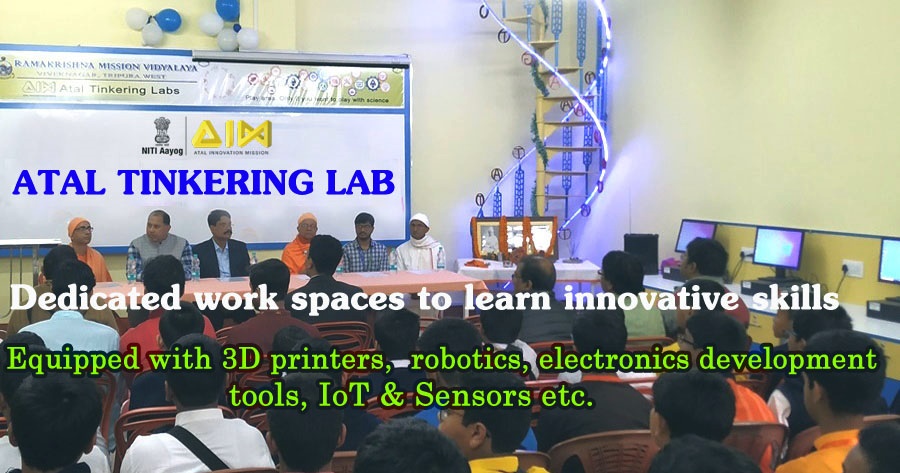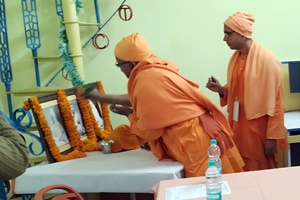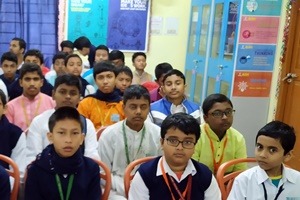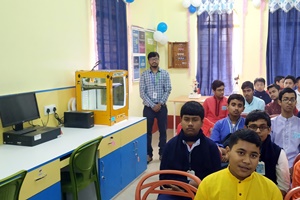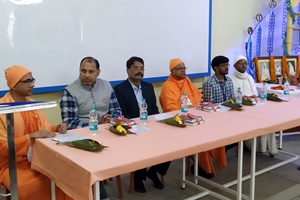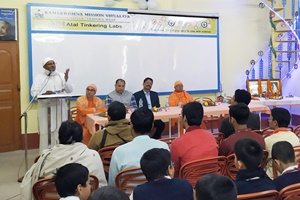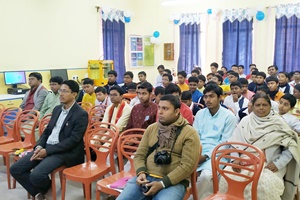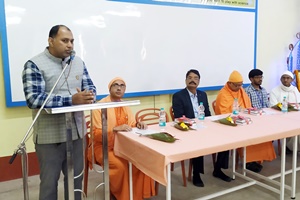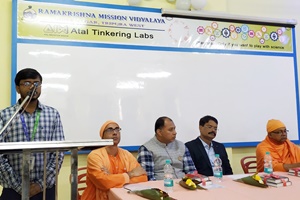Atal Tinkering Lab
Atal Innovation Mission, set up at NITI Aayog, is Government of India’s flagship initiative to foster the spirit of innovation and entrepreneurship across India in a holistic manner with the vision “To create One million Neoteric Innovators by 2020".
Computational Thinking
Computers can be used to help us solve problems. However, before a problem can be tackled, the problem and the ways in which it could be solved needs to be understood. Computational thinking allows us to do this. It allows us to take a complex problem, understand what the problem is and develop possible solutions. These solutions can then be
presented in a way that a computer, a human, or both, can understand.
Design Thinking
The process of Design Thinking (DT) is opposite to this kind of traditional teaching. While teaching DT, students are encouraged to explore real-world problems without easy solutions. They are expected to take charge of their own learning, work together in teams rather than individually and understand that there are no “right answers” to the greatest of problems. In simple words - Design Thinking is a method for practical, creative resolution of problems, and creation of solutions.
Physical Computing
Physical computing takes a hands-on approach, which means spending a lot of time building circuits, soldering, writing programs, building structures to hold sensors and controls, and figuring out how best to make all of these things talk to each other and give the desired output. Smart automotive traffic control systems, factory automation processes, washing machines, fitness equipment found in homes, offices and industry – these are all things that make use of physical computing.
ATL Drone Module
The ATL Drone Module, created in collaboration with Drona Aviation, is one such enabler for the ATL students to explore the world of drones and its possibilities allowing their imaginations to fly high. With the Drone module, Sky indeed is the limit for their creativity and innovation.
3D Printing
The creation of a 3D printed object is achieved using additive processes. In an additive process an object is created by laying down successive layers of material until the entire object is created. Each of these layers can be seen as a thinly sliced horizontal cross-section of the eventual object.
ATL Space Module
The ATL Space Module will allow student innovators to understand the technologies that are used in space, to get inspired. The module is a starter’s kit to Space science, developed on the philosophy of ‘learning by doing’. Students can build their own prototypes with the help of introductory information provided in the module.
Are you Ready for the Second ATL Training Programme to be conducted on 12th and 13th March 2020 ?

First Batch
Timing: 9:00 AM - 11:00 AM

Second Batch
Timing: 11.30 AM - 01.30 PM

Third Batch
Timing: 02.00 PM - 04.00 PM
“Atal Tinkering labs will allow you to convert your imaginations into incredible innovations giving birth to potential job creators.”
- Ramanan Ramanathan
Mission Director, Atal Innovation Mission
NITI Aayog
Govt. of India
ATL Inauguration Programme
Our most anticipated ATL inauguration programme was held on 30th January 2020, on the auspicious Saraswati Puja day. Revered Srimat Swami Hitakamanandaji, Secretary, Ramakrishna Math and Ramakrishna Mission, Agartala, Tripura, inaugurated our ATL in august presence of Sri Nirmalya Kar, Professor, NIT Agartala, Computer Science and other dignitaries. Six models made by our students were demonstrated to nearly 2500 guests, guardians and alumni who visited the Lab on that day itself. The grand inauguration programme has created a sensation and attracted praise and pride of many for Vidyalaya.

